Making sustainable coconuts
the norm in chocolate production
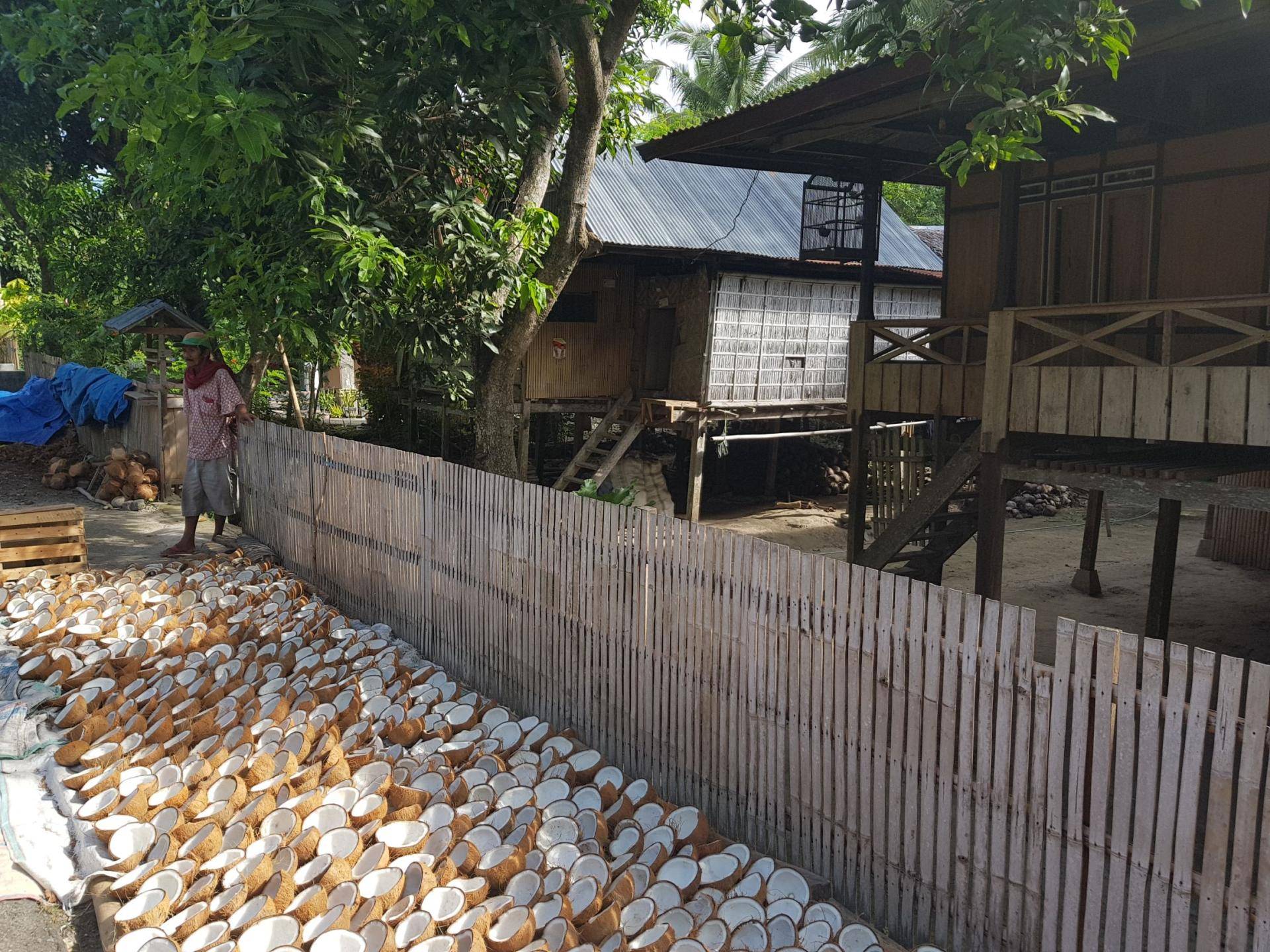
Making sustainable coconuts
the norm in chocolate production
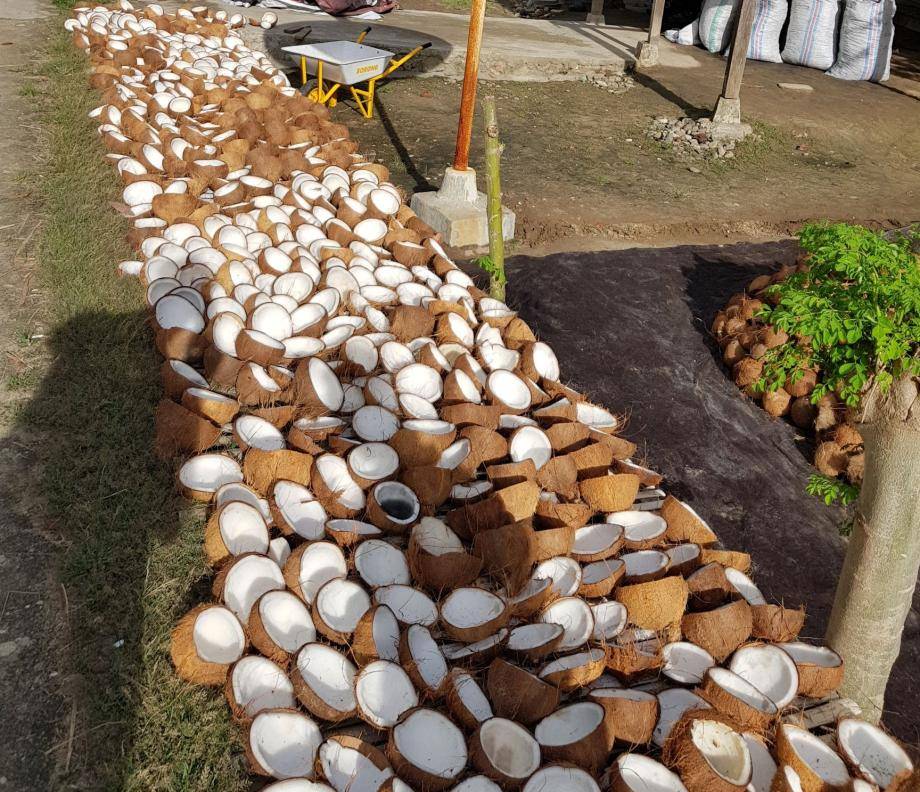
Rows of harvested coconuts undergoing drying stage on the ground
Coconut trees are not just another tropical tree. When grown and harvested sustainably, they are an important natural resource that offers a wide range of benefits to the environment, the economy, and the communities that rely on them.
The sustainable production of coconuts is an important topic in the chocolate industry. Coconut oil is a versatile ingredient that is commonly used in ice cream applications, confectionery fillings and compounds. While there is tremendous market potential in the industry, there are also significant production challenges for sustainable coconut.
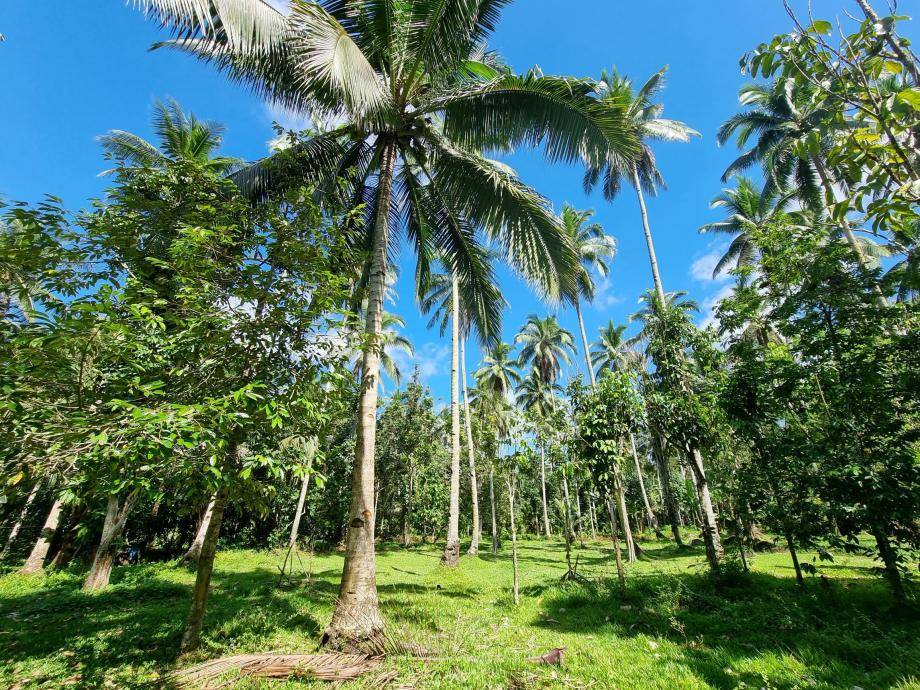
Coconut plantation in Davao region, Philippines
Challenges in coconut production and its declining volume worldwide
Today, coconut production is unable to keep up with the rising global demand. In the Philippines for example, one of our main sourcing countries, farmers are mostly smallholders and face many challenges that threaten their livelihoods.
With limited access to finance, farmers are not always able to invest in agricultural inputs such as fertilizers or replace aging trees, affecting productivity and crop quality. In addition, low adoption of good agricultural practices, extreme weather events, lack of access to technology and limited market knowledge are all factors that hinder farmers’ prospects. These challenges are compounded by fragmented supply chains, making traceability and farmer engagement more complex.
How our Choco-nutty journey started
When Barry Callebaut embarked on our journey to source 100% sustainable coconut oil, we discovered a clear gap in terms of what a sustainable coconut supply chain should look like. In 2019, we took the first step in partnership with the U.S. Agency for International Development (USAID), Green Invest Asia, and brought together buyers, processors and other actors actively involved in the coconut supply chain to create the first Roundtable on Sustainable Coconut & Coconut Oil. The Roundtable took form as a series of meetings to collaboratively find solutions and share investment approaches to establish cost-effective sustainable coconut value chains and support farmers’ livelihoods.
Through the roundtable and in consultation with more than 100 industry organizations and civil society groups, the Sustainable Coconut Charter was published. The Charter outlines areas of focus, principles and outcomes expected from sustainability programs in coconut supply chains.
Today, this initiative has become “The Sustainable Coconut Partnership”, an industry led multi stakeholder platform with a mission to work towards a responsible and resilient coconut sector that drives positive impact for farmers’ livelihoods, the climate and the environment.
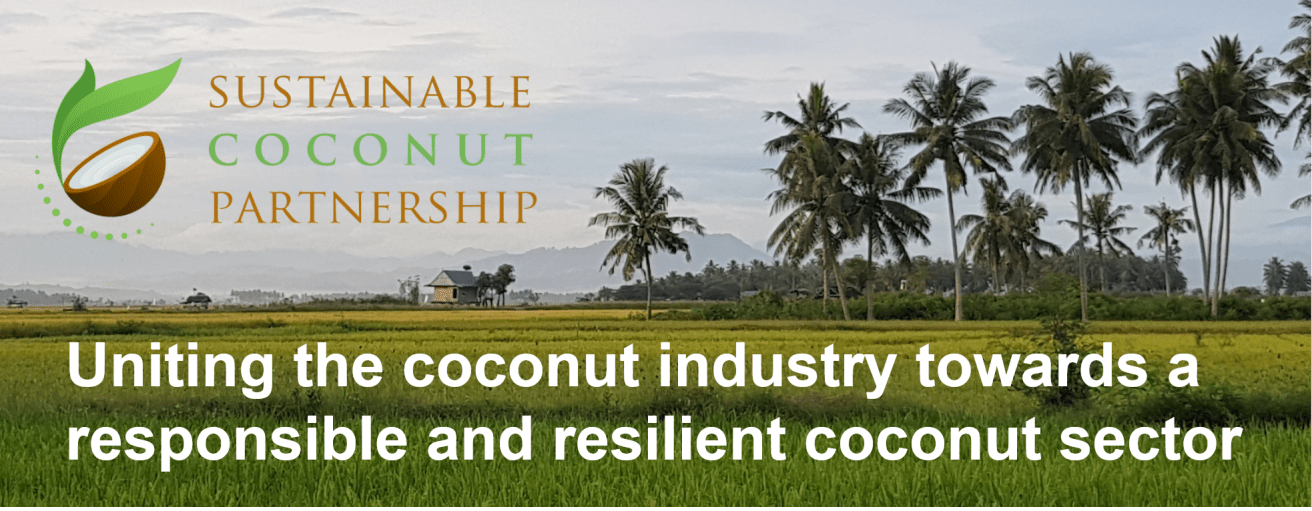
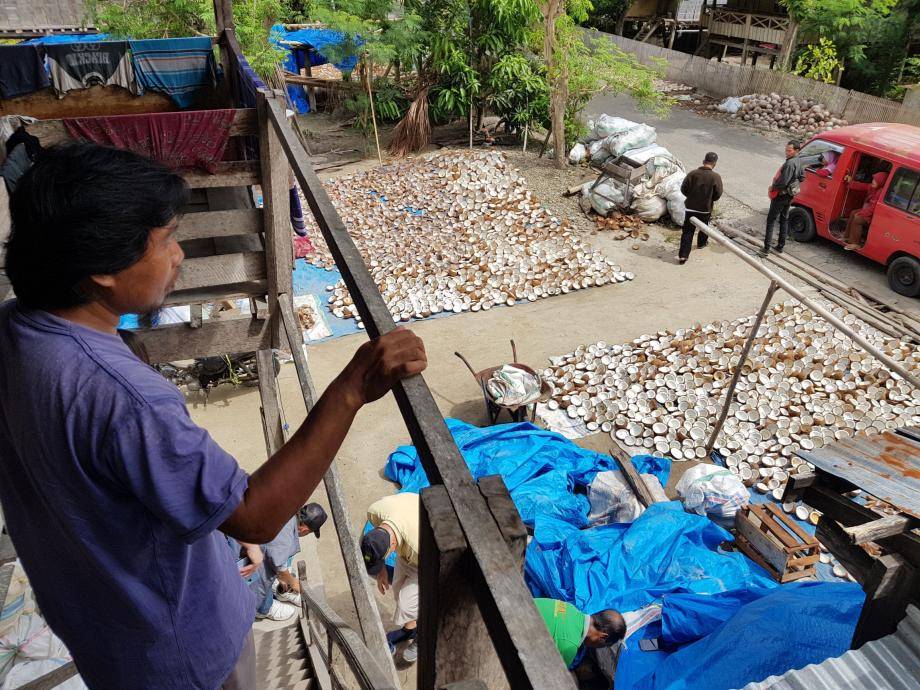
A coconut farmer with his coconut harvest in West Sulawesi, Indonesia
Together with other leading companies, Barry Callebaut is proud to be one of the founding members of this latest global sustainability platform in the commodities space, launched in April 2023 to operationalize the charter and catalyze industry transformation.
Four years ago, there was a clear gap in the coconut market to address the underlying social-economic and environmental challenges and the future of the industry. Fast forward to today, we can be more assured that the coconut industry will be sustainable for the future generations!